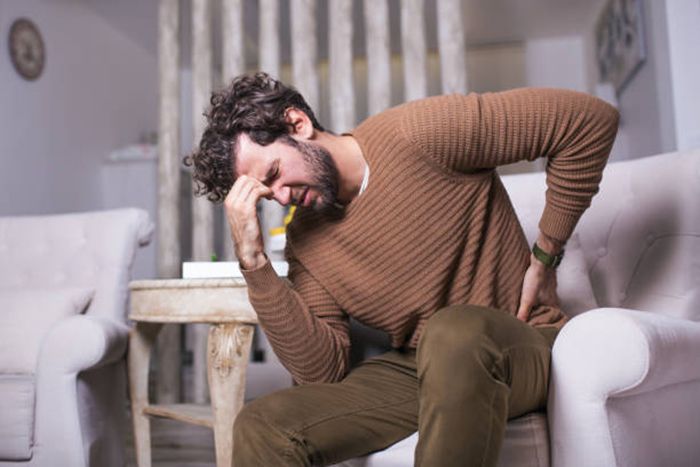
Published on June 6, 2022
Read Time: Two Minutes
Did you know? About one in 10 people will likely get a kidney stone in their lifetime.
Kidney stones are hard deposits of minerals and salts that can form in your kidneys. They can travel through the ureter, the tube between your kidney and bladder.
If a kidney stone reaches your bladder, you can usually pass the stone when you urinate. However, sometimes, a kidney stone becomes stuck in the ureter, which blocks urine and can cause pain.
Severe pain in the upper abdomen, sides or back of your body is one of the first symptoms of kidney stones. Other kidney stone symptoms include the following:
- Pain near your bladder
- Urinating frequently
- High blood pressure
- Blood in your urine
If you have a fever, chills, shakes or a rapid heart rate, in addition to the symptoms mentioned above, this may be a sign of infection, and you should seek medical care immediately.
If you have a family history of kidney stones, you may be at higher risk of developing them, too.
Your doctor or healthcare provider can diagnose kidney stones based on a physical exam, urine and blood tests, or a CT (computed tomography) scan.
Kidney Stones Treatment and Prevention
In some cases, you can pass kidney stones on your own, with the help of certain medicines to control the pain. Kidney stones that are 4 millimeters in diameter or less have a 90% chance of passing on their own, given time and pain control.
However, some kidney stones require surgery to be removed.
Drinking plenty of water can help lower your chances of getting kidney stones as can changing your diet, depending on the type of kidney stones.
- For calcium stones, you should reduce the amount of salt in your diet.
- For oxalate stones, eat less oxalate, which can be found in green, leafy vegetables.
- For uric acid stones, try eating less non-dairy animal protein, such as red meat or fish.
If you have questions or concerns about kidney stones, talk to your healthcare provider.
Editor’s Note: This post was originally published in May 28, 2021, and has been updated for accuracy and comprehensiveness.
For More Information About Kidney Stones
Geoffrey Lloyd-Smith, MD, FACS, is a board-certified urologist at Phelps Health. To learn more about urology services at Phelps Health, call Phelps Health Urology Clinic at (573) 458-3150.